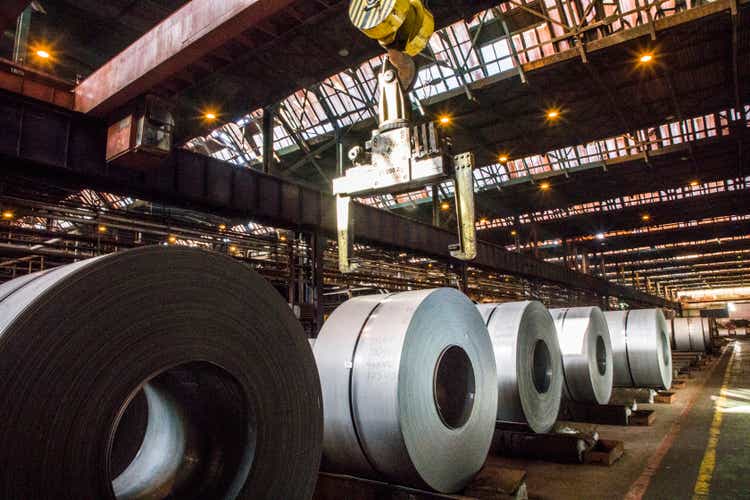[ad_1]
Virtually six in ten small and medium-sized companies say they like a hybrid model of working which mixes dwelling working with going into the workplace, in response to new analysis.
With eye-watering power charges proceed to sting for workers working at dwelling, the price of residing could also be forcing tens of millions to stability dwelling and HQ – are they essentially as comfortable as they had been to work predominantly from their eating rooms and backyard workplaces?
PRISM’s SME Barometer, which polled 2,000 small and medium-sized companies, prompt some workforces might by no means correctly ‘return to the workplace’ within the wake of the pandemic.
The report states there are 400 million SMEs around the globe – together with 5.6 million SMEs within the UK alone – with corporations of this dimension constituting as a lot as 99% of the European Union’s companies. What’s extra, SMEs make up three-fifths of the UK personal sector’s employment – in addition to round half of its turnover.
However, many SMEs had been discovered to be dealing with the prospect of mountain climbing up their costs for patrons because of rates of interest and power prices capturing up – with the scenario compounded by uncooked materials shortages and provide chain issues.
Researchers argued the ‘double shock of COVID-19 and the Russian invasion of Ukraine’ has resulted in inflation to soar whereas development has slowed down. “Commentators ponder whether or not we’re on the cusp of seeing a return of a Seventies model world stagflation – putting concern into policymakers as there are few financial instruments to handle it,” the report provides.
The SME Barometer additionally states: “Our analysis reveals that SMEs are being caught within the crosswinds and might want to change into much more agile not just for their survival short-term, but additionally in order that they are often prepared for his or her future development”.
A lot of this agility, it might be argued, might stem from a cautious adoption of hybrid working – permitting staff to separate their time between dwelling and the workplace. Nevertheless, such flexibility for an SME might come at an expense for the common worker.
Tellingly, whereas many staff are eager to do business from home wherever potential, skyrocketing residing prices – comparable to operating electrical energy and fuel from their properties – might pressure them to hunt cheaper every day bills on the workplace. Vitality costs are outstripping the price of every day rail fares at current – and people who can stroll or cycle to work, in fact, stand to avoid wasting much more cash.
May this imply SMEs must rigorously stability their attitudes in direction of hybrid working with the intention to hold their staff on-side? Alternatively, will working from dwelling change into fashionable once more ought to inflation fall and the price of residing lower?
Such issues usually are not the only issues for SMEs heading into the post-COVID, Ukraine wartime local weather. PRISM’S SME Barometer additional suggests an lack of ability to safeguard SMEs has highly effective penalties on the broader economic system – with a thriving SME sector capable of wrench a nation out of a recession.
The survey discovered virtually six in ten SMEs say they’re prioritising digital transformation, whereas simply over half of all companies stated they felt optimistic their organisation would have the ability to deal with IT points whereas constructing a brand new digital local weather. Many companies had been compelled to hurry up their digitisation course of after COVID compelled companies to work remotely.
Over 70% of SMEs stated benefits, comparable to decrease prices and boosted income, which digitalisation can ship within the subsequent half a decade, permits them to seize high-margin enterprise by way of enhanced insights into buyer behaviour by means of information analytics.
Susannah Streeter, senior funding and market analyst at Hargreaves Lansdown, stated: “Corporations and shoppers are already braced for additional charge rises which run the danger of creating the price of residing and enterprise costlier.
“The poisonous mixture of excessive commodity prices, provide chain points and the combat for labour is already weighing on demand, and the concern is that if charges rise too quickly it might tip the economic system right into a downturn”.
The report additionally explored geographical disparities which pervade the UK – with London and the South East having round 3 times extra funding per head in transport compared to the remainder of the UK, in addition to having essentially the most profitable training system and being a magnet for the “greatest expertise”.
Exploring the problem of levelling up across the UK to stamp out geographical inequalities, Robert Colvile, Director, Centre of Coverage Research, stated: “One of the simplest ways to stage up Britain’s areas is to not punish the south for its prosperity, however to provide each a part of Britain the liberty, and the instruments, to compete for expertise, funding and infrastructure. It’s no coincidence that we’re concurrently some of the centralised nations in Europe and some of the geographically unequal.”
Nick King, Head of Enterprise Coverage on the Centre for Coverage Research, added: “Whether or not that is achieved by means of devolution, infrastructure funding, a revamped method to expertise and training or the introduction of recent business-friendly ‘Alternative Zones’, the one approach to shut the hole and to result in financial development across the nation is by giving the personal sector each motive to speculate and function in these components of our nation that want funding most”.
Whereas agility would be the order of the day for SMEs striving to succeed post-pandemic, it’s on a regular basis staff, too, who have to hold agile. Digitalisation and hybrid working requirements might assist to bolster these companies and their employees in opposition to future chaos – however present monetary crises might pressure slight stagnation within the race for evolution. The subsequent few years, main as much as mid-decade, might be essential for all concerned.

[ad_2]
Source link









